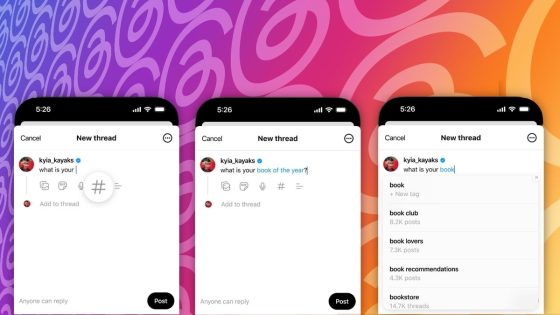Threads rolls out “Tags”, its own simplified version of hashtags،
Meta's Twitter competitor, Threads, is aadding a new feature called “Tags,” which aims to simplify how users categorize and discover content. Unlike traditional hashtags, tags offer a more targeted and streamlined approach to grouping topics, with several key differences.
Second, tags are seamlessly integrated into the text, appearing as blue hyperlinks rather than standalone hashtags preceded by the # symbol. This creates a cleaner, visually appealing experience, while still maintaining their functionality.
Adding a tag is simple: users can either enter the # symbol followed by the text of the desired tag directly in their post, or select it in the new post UI. This intuitive design ensures accessibility and ease of use. Unfortunately, it doesn't appear that tags are supported on the web version of the app yet, even if you manually enter the tag symbol (#).
Instagram and Threads boss Adam Mosseri explained in his own post that tags also support phrases and special characters, and that their goal is to help you “categorize your posts and allow others find and participate in the conversation more easily. He also highlighted that the decision not to display the famous hashtag symbol (#) in the published post and to limit tags to one per post was made deliberately in order to discourage engagement hijacking.
















